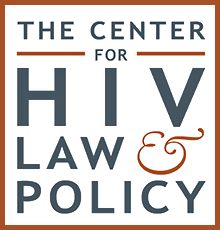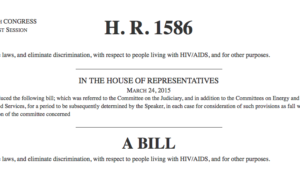Overview
There are no HIV-specific laws criminalising ‘exposure’, non-disclosure, or transmission in Rhode Island, and we are not aware of any cases of people living with HIV being prosecuted due to their status. There are however a number of health laws which regulate people living with HIV and other STIs.
There is a general disease law which makes it an offence for anyone living with STIs to ‘expose’ others. HIV is not explicitly included, but the provision is drafted broadly. The means of ‘exposure’ are not defined, and there is no clarification on the status of disclosure or the use of protections such as condoms, but the law does require the person to be in an ‘infectious condition’, which could exclude those living with HIV with a suppressed viral load. The penalty available is up to three months’ imprisonment and/or a fine. We are not aware of any prosecutions under this law.
A number of provisions impose compulsory HIV testing for people living with HIV. All people convicted for sex work offences or intravenous drug offences must submit for HIV testing in all instances, and anyone convicted for sexual offences involving penetration can be compelled to submit to HIV testing on request of the victim’s family. Health laws also permit people suspected of living with STIs to submit to examination, treatment, and quarantine. Refusal to comply with these regulations can result in imprisonment for up to 30 days and/or a fine in the first instance. Compliance orders may also be placed on those who fail to submit, and further violation can result in imprisonment for up to three months and/or a fine.
There have not been any significant amendments to the law in Rhode Island in recent years. In 2015 there was an attempt to introduce an HIV-specific ‘exposure’ offence, but this did not progress through the legislature.For a detailed analysis of HIV criminalisation in Rhode Island, as well as all other US states, see the Center for HIV Law and Policy report, HIV Criminalisation in the United States: a Sourcebook on State and Federal HIV Criminal Law and Practice.
Laws
Rhode Island General Laws § 23-11-1
Diseases declared contagious – Exposure of another to infection
Sexually transmitted diseases shall include, but not be limited to, syphilis, gonorrhea, chancroid, granuloma inguinale, and lymphogranuloma venereum and other diseases that the director of health may by regulation determine to constitute a sexually transmitted disease. Sexually transmitted diseases are declared to be contagious, infectious, communicable, and dangerous to the public health. It shall be unlawful for anyone knowingly, while in the infectious condition with these diseases, or any of them, to expose another person to infection. Any person found guilty of violating the provisions of this section shall be fined not more than one hundred dollars ($100) or imprisoned for not more than three (3) months.


